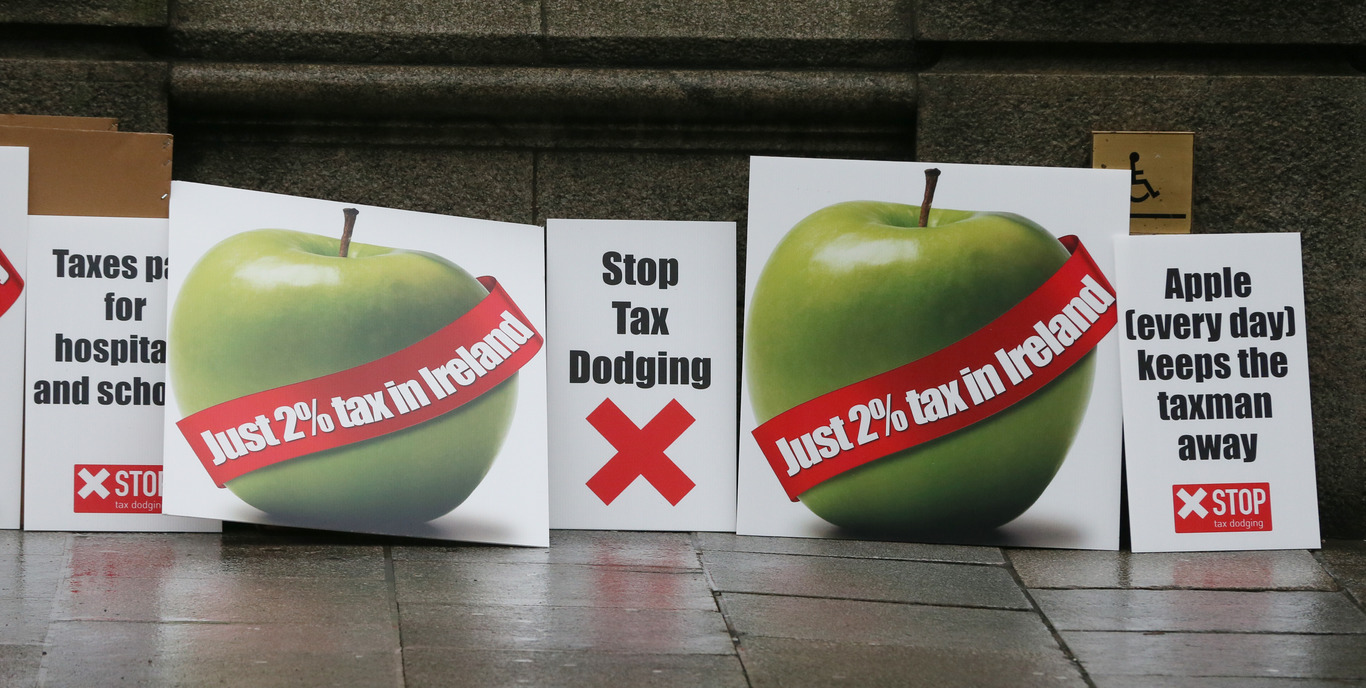The Double Irish and Apple tax case have hurt our reputation - here's how we can stop a repeat
The country needs an independent body to advise on tax fairness and transparency.
WHEN THE GOVERNMENT decided to phase out the ‘Double Irish’ tax loophole in 2014, it wasn’t because it suddenly realised the inequity of the scheme.
It was because the Double Irish had come to represent the most egregious of avoidance schemes and, crucially, was doing significant damage to Ireland’s reputation internationally.
Reputation is crucial to a state, none more so than Ireland, where criticism of our tax code from around the world is regular and harsh.
Reputation, and the goodwill that goes with it, is crucial for building strategic political alliances, which Ireland will need in buckets as it faces the twin challenges of Brexit and potential changes to the US tax code.
We haven’t done ourselves any favours here. The Double Irish and vulture funds using tax loopholes to avoid tax on large property portfolios are all grist to a critic’s mill.
Yet companies, in the main, are being legally compliant with the tax rules of the land. From CEOs to government ministers, the responses to accusations of financial trickery are always that the scheme in question is legal.
This argument is an essential part of the government’s Apple appeal – we collected from Apple what we were legally required to. Except perhaps, in some cases, the law is an ass and crucially does nothing to protect our hard-won international reputation.
If you go to tax lawyers and accountants for tax counsel, as companies do, you will get advice on the legality of a proposed scheme. They will almost never advise on the reputational aspect of a proposed avoidance scheme.
And it’s Ireland’s reputation as a champion of human rights that is taking a hit. How can a country that advocates for human rights across the world engage in tax competition that undermines poor countries’ ability to raise revenue for vital public services?
Some might say that undercutting Germany’s tax take is not something to apologise for, but when our tax policy undermines Zambia or Kenya, that’s a different matter.
A new body
This is one of the reasons why we have been lobbying for the establishment of a state body that would approach issues of tax transparency and fairness through a wider lens than just legality.
It would include representatives of the private sector, international NGOs, human rights experts and others, that can advise the government on issues related to corporate transparency and fairness, while at the same time ensuring Ireland remains competitive internationally.
In doing so, it could play an important role in helping the government to anticipate issues before they become crises.
Such a group could have advised on the reputational damage that the Double Irish was doing and allowed the government to take pre-emptive action long before it was forced to.
Establishing such a body under the office of the taoiseach would provide it with the kind of political weight that would ensure it can’t be sidelined by any other government department.
It would also have the capacity to commission and carry out its own research, which could focus, for example, on identifying policy or legislative gaps that may allow for aggressive, reputation-damaging avoidance schemes.
There are models that could be replicated such as the government’s expert advisory body on climate change. It may also be possible to facilitate this in an existing state structure such as the National Economic and Social Council, which has many of those attributes and functions.
Ultimately though, this government must recognise that the twin issues of maintaining Ireland’s reputation as a champion of human rights and remaining competitive internationally are one and the same.
Getting the balance right between the two is important enough to require a formal structure where informed debate, discussion and advice can happen.
Sorley McCaughey is head of advocacy and policy at Christian Aid Ireland.
If you want to share your opinion, advice or story, email opinion@fora.ie.






